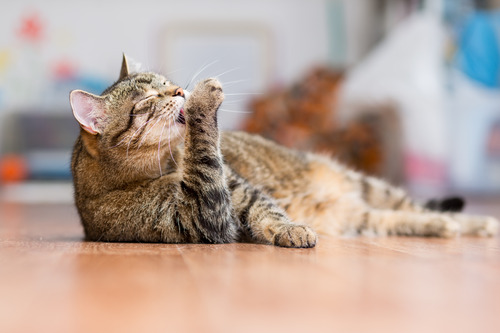Cats are more than just pets; they’re part of the family. But just like any family member, they can have health issues, including allergies. At Best Friends Animal Hospital in Manchester, NH, we often meet pet owners who are puzzled by their cat’s symptoms, unsure if they’re dealing with feline allergies. This blog aims to shed light on identifying, treating, and managing allergic reactions in cats, ensuring your beloved pet leads a happy, comfortable life.
Identifying Feline Allergies
Allergies in cats can be tricky to pinpoint. Symptoms can range from skin irritation to respiratory issues, and understanding these signs is the first step to providing relief.
Common Symptoms of Feline Allergies
Cats with allergies often exhibit several telltale signs. Look out for:
- Excessive scratching
- Skin sores
- Hair loss
- Sneezing
- Coughing
- Digestive issues
These symptoms can indicate an allergic reaction to something in their environment or diet.
Triggers of Feline Allergies
Identifying what causes allergies in your cat is crucial. Common allergens include pollen, mold, dust mites, certain foods, and even fleas. Each cat is unique, so what affects one might not bother another. It’s a process of elimination to find the culprit.
Treating and Managing Allergic Reactions
Once you’ve identified that your cat is suffering from allergies, the next step is treatment and management. It’s important to consult with a veterinarian, like the team at Best Friends Animal Hospital, to determine the best course of action.
Veterinary Care for Allergic Cats
Our doctors can offer various solutions, from allergy shots to dietary changes, depending on the allergy type. Remember, the goal is to manage symptoms and improve your cat’s quality of life, not to provide a cure, as allergies are often a lifelong issue.
Creating an Allergen-Free Environment
Making your home as allergen-free as possible can significantly reduce your cat’s allergic reactions. This might include:
- Using hypoallergenic bedding,
- Regular cleaning to reduce dust and dander
- Choosing cat litter and cleaning products that are free from triggering chemicals
- Parasite prevention for cats
When to Seek Professional Help
If you notice any signs of allergies in your cat, it’s important to act swiftly. Allergic reactions can range from mild to severe, and in some cases, can lead to more serious health issues if left untreated. Regular check-ups with your veterinarian are essential for managing feline allergies effectively. These visits allow for ongoing assessment of your cat’s condition and adjustments to their treatment plan as needed.
Contact Best Friends Animal Hospital Today
Understanding, identifying, and managing feline allergies are key to ensuring your cat lives a comfortable life. With the right care and attention, allergic reactions can be managed effectively. If you suspect your cat is suffering from allergies, reaching out for professional advice is the best step forward. At Best Friends Animal Hospital, we’re here to help every step of the way. Call us at (603) 625-2378. Our team is dedicated to providing the best care for your pet, helping manage their allergies for a healthier, happier life.





